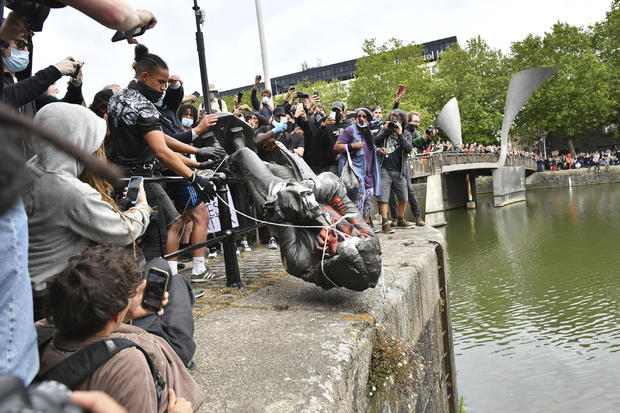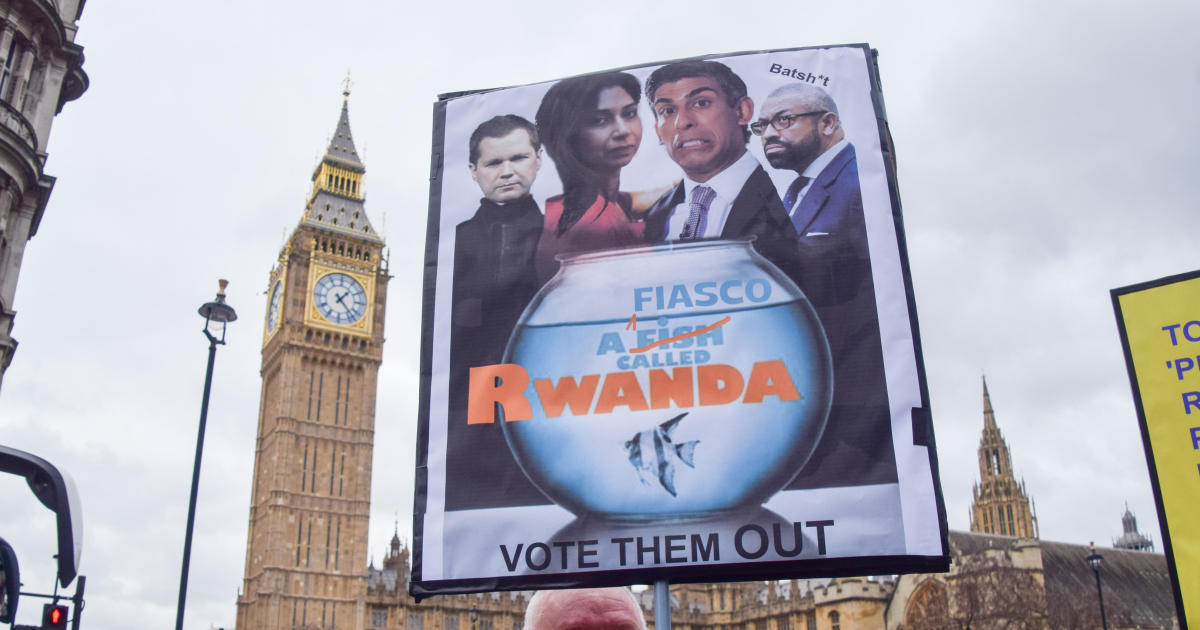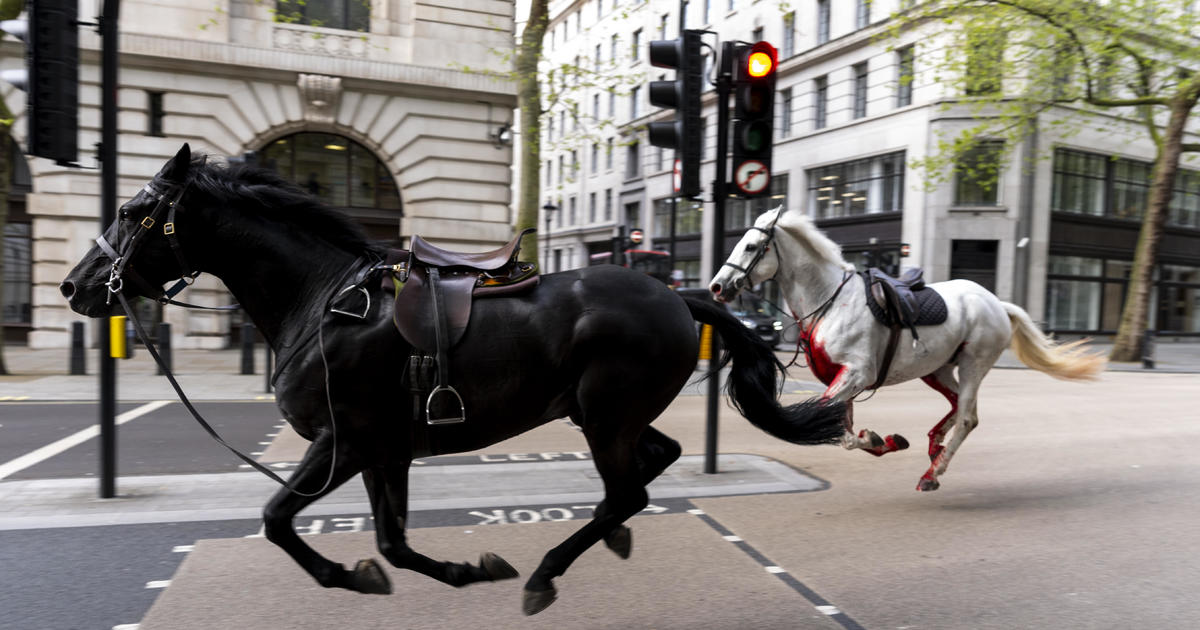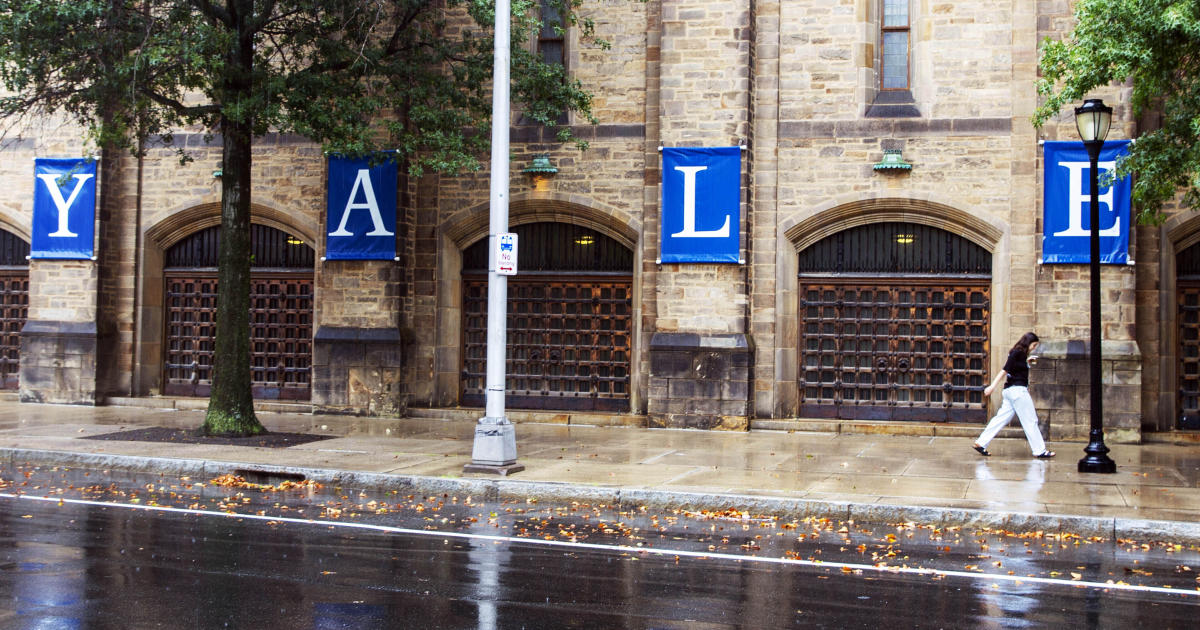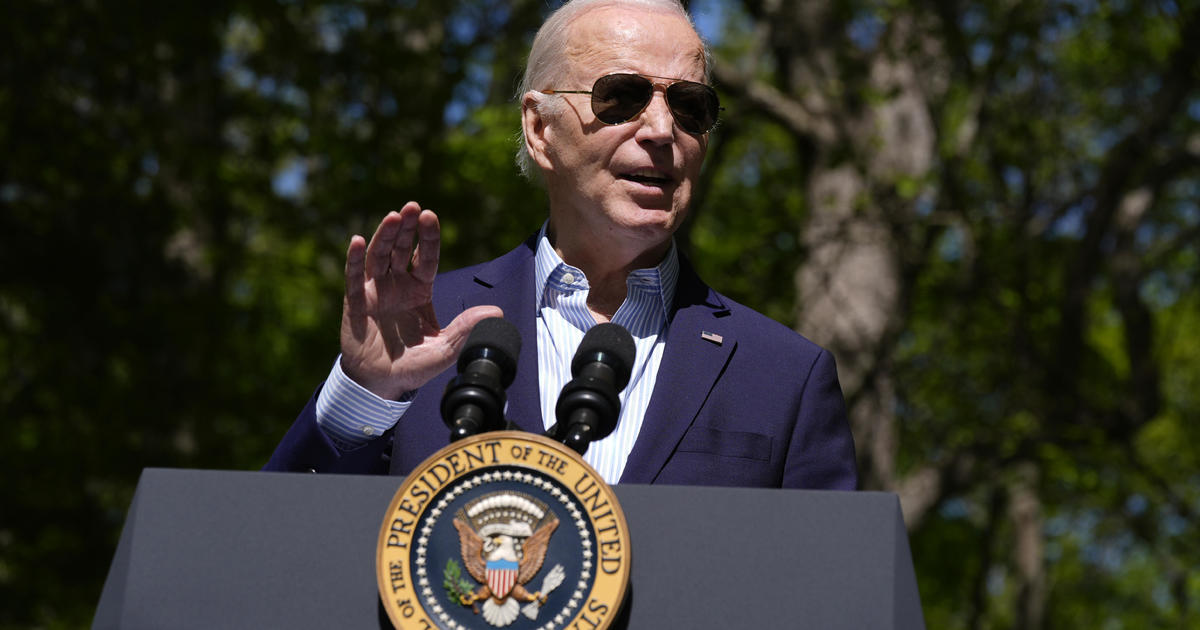U.S. protests prompt calls for Britain to tackle its own systemic racism
London — Thousands of demonstrators took to the streets across the United Kingdom again over the weekend in solidarity with protesters in the United States, but also to demand an end to systemic racism in Britain. The marches came after an enormous protest last Wednesday in Hyde Park.
"The U.K. is not innocent," was written on placards and chanted by marchers who flooded into the streets, bringing traffic to a standstill in central London on Saturday. On Sunday, as thousands gathered outside the U.S. Embassy in the capital, demonstrators in the British city of Bristol pulled down a statue of a 17th century slave trader, Edward Colston, which had stood in a public square since 1895.
As police looked on, the crowd dragged the statue to the city harbor and threw it in the water.
"I can't and won't pretend the statue of a slave trader in a city I was born and grew up in wasn't an affront to me and people like me," Mayor Marvin Rees — the first black city mayor elected in Europe — told the BBC.
"I think circumstances came to a head at this particular moment in time and people felt the need to take the statue down," he said.
"People might say it's vandalism, but black people have to walk these streets," one protester told the BBC. "Black slaves built Bristol… That statue is a kick in the face."
"The U.K. is not innocent"
The protests sparked by the killing of George Floyd in the United States have fueled demands for Britain to acknowledge its own history of racism and tackle the prejudice in its own institutions.
"We're here about the systematic racism against people of color and minorities in general around the world, not just in America," Black Lives Matter protester, TJ, told CBS News at the protest in Hyde Park on Wednesday.
"This is a system at play that has subjugated African Americans, Africans, people of color for years," he said, pointing specifically to the 2011 killing of 29-year-old Mark Duggan, a black man fatally shot by London police whose death triggered nationwide rioting.
Sharon Rose was outside the U.S. Embassy in London on Sunday carrying a large sign painted with Floyd's image.
"This is a chance for us to make a stand and try and root out racism at work, at school, in people's homes," Rose told CBS News. "Black culture is very much accepted in the U.K., but the black people behind it also need to be accepted and respected and valued, and this is why we're here today."
"Justice for Belly"
While the names of Floyd and Duggan often come up at the U.K. demonstrations, many protesters are also calling for justice in the case of Belly Mujinga, a 47-year-old black woman who worked in a central London train station. While on the job one day in March, Mujinga said she was spit on in a racist attack by a white man claiming to have the coronavirus. Shortly thereafter, Mujinga contracted COVID-19 herself. She died on April 5.
Her family claims she tried to make a complaint about the incident but wasn't listened to by her employers. Police closed her case without prosecuting anyone, saying there was insufficient evidence.
On Wednesday, some of Mujinga's family members appeared along with actor and producer John Boyega in front of thousands of Black Lives Matter protesters in Hyde Park. One of her relatives, through floods of tears, said it wasn't right that Mujinga's case had been closed.
"They call this a free country. This doesn't look like a free country," she said. "Let's get justice for Belly."
As pressure mounted, the British Transport Police announced Friday that the U.K.'s prosecutorial watchdog would conduct an independent review of the evidence in Mujinga's case.
"I want the people who did the attack to be found and prosecuted. I want the work force that she was working for — she was working for the train company — I want them to be prosecuted too, because it was bad management from them as well. They didn't listen to her," protester Mary Wright, 20, told CBS News.
"I want people to listen. I want people to change, and not just say that they're changing. I want them to mean it," Wright said.
On Monday, a spokesman for U.K. Prime Minister Boris Johnson said Johnson, "doesn't doubt that there continues to be discrimination and racism, but would not agree that this is a racist country. We have made very significant progress on this issue but there remains more to do. The PM is absolutely committed to continuing efforts to stamp out racism and discrimination."
